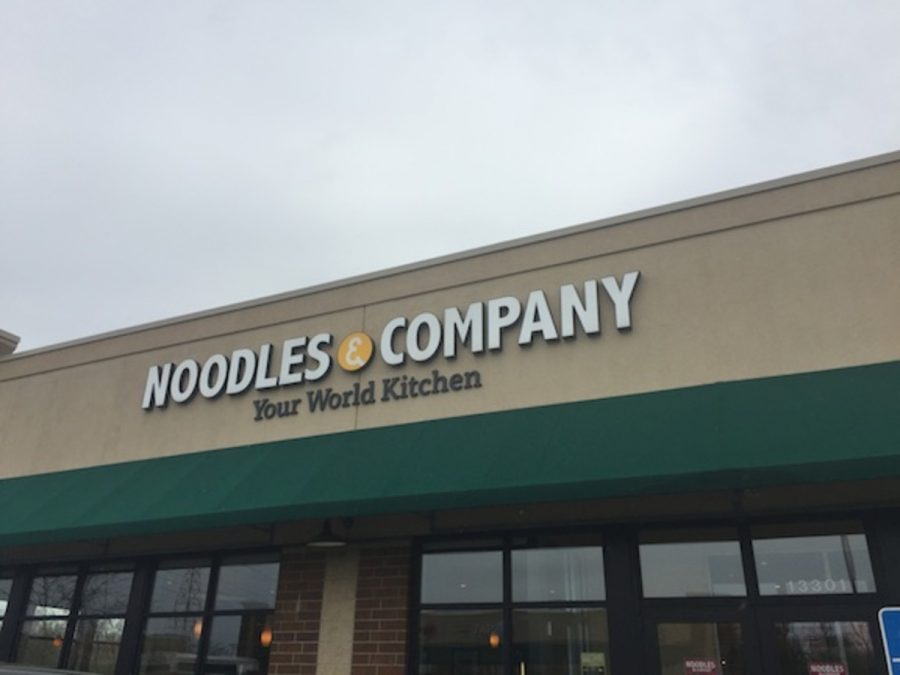Fast food industry using more organic foods
April 26, 2016
People are strolling around supermarkets filling their carts with non-organic food galore and do not even know it. Those same people may consider fast food restaurants their second home, familiar with the menu’s latest triple-burger creations. However, these behaviors are becoming a thing of the past now that many people have started taking their health seriously.
Customers buy food more when they identify with trigger words like organic, natural, locally sourced, sustainable and non-GMOs, which is why Chipotle is successful in the fast food industry. Organic sales in America have risen about 20 percent annually, making this the fastest growing area of the food market.
Organic beans, rice and tofu: these foods feature in Chipotle Mexican Grill’s menu. Chipotle is 100 percent organic. The organic label is an important piece of their growth strategy.
“Chipotle does a good job promoting organic food by sending out coupons, having signs in the store and posting things online,” senior Matt Crea said.
Crea does not consider it fast food. However would he not call it a sit-down formal restaurant. He is somewhere in the middle when it comes to making that decision.
Stated on the Chipotle website, “Chipotle is on a never-ending journey to source the highest quality ingredients we can find. Over the years, as we have learned more about GMOs, we’ve decided that using them in our food doesn’t align with that vision. Chipotle was the first national restaurant company to disclose the GMO ingredients in our food, and now we are the first to cook only with non-GMO ingredients.”
Chipotle also has sayings like “G-M-Over it” and “When it comes to our food, genetically modified ingredients don’t make the cut.” Their website boldly declares their stance on organic food.
The movement for towards serving healthier foods is spreading. Panera Bread has recently created a “No-No list,” which lets people see the entire rundown of foods the chain plans on improving.
According to Natural News, the hydrogenated soy protein, propylene glycol alginate and maltodextrin once found in Panera’s Greek salad dressing are gone.
The whole idea of the “No-No list’ is to remove artificial preservatives, sweeteners, colors and flavors that appear on their menu by the end of 2016.
Senior Sophie McNurlin said, “Panera is on the healthier side of most restaurants. I personally do not view it as fast food because I would not consider it your typical greasy food.”
Panera also won top honors for their food choices, like squeezable organic yogurt, PB&J (with all-natural peanut butter), and grilled organic cheese on white whole-grain bread.
“I want to serve everyone the food I want my daughter to eat. And if I feel uncomfortable about serving her some of this stuff, I don’t want anyone else to eat it,” Panera CEO Ron Shaich said.
Fast food restaurants are picking up on the increasing demands of health-conscious people, who are working to keep harmful chemicals and non-organic foods out of their establishments so that customers stay in them.
“A hundred years ago, all food was grown organically and locally by small farms. As farming practices changed, growing methods changed as well,” school nutritionist Julie Powers said. “Now, as people are becoming more aware of where and how their food is produced and the unintended environmental and health consequences of corporate farm culture, there is a movement back to local and organically grown.”
People are constantly unwrapping a sandwich while driving down the highway or pulling a U-turn into a fast food joint on the way home from school or work. The generation that exists today live in their cars, going place to place so they need quick food which is why the fast food industry is constantly growing. With the organic industry growing it has made its face present in the fast food’s one.
